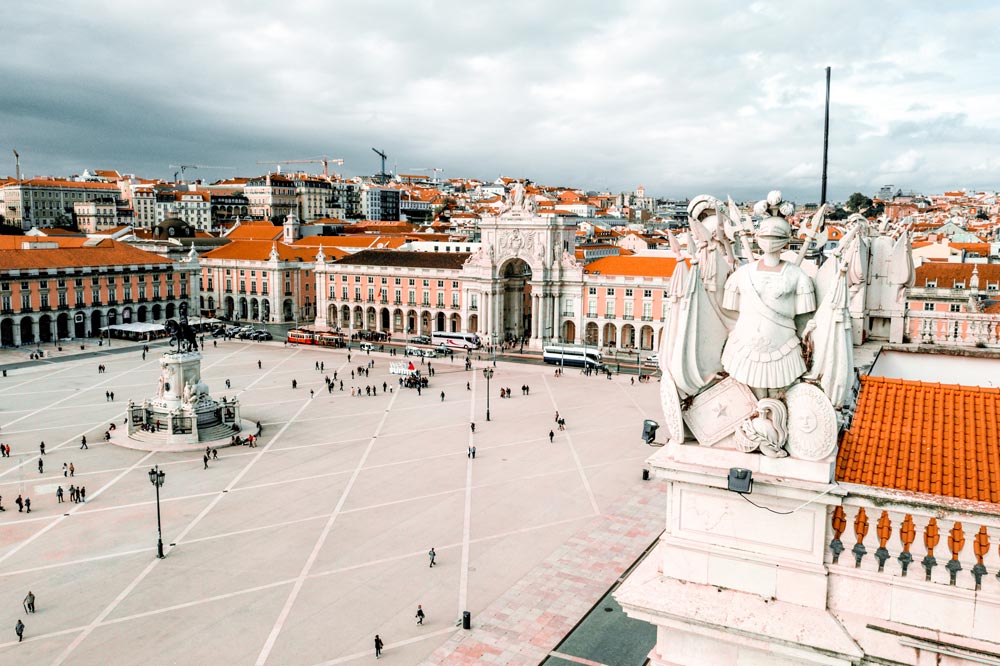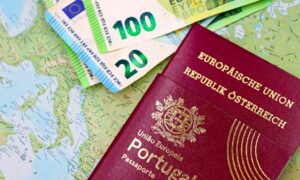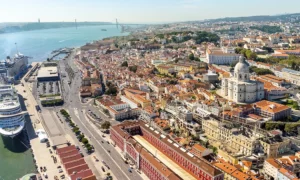Portugal has become a top destination for expats and international investors alike. Known for its mild climate, rich cultural heritage, affordable lifestyle, and strategic location within the European Union, Portugal offers a unique blend of tradition and opportunity. Whether you’re considering relocating for a better quality of life or looking to invest in one of Europe’s most promising real estate markets, Portugal ticks many of the right boxes. This guide explores the ins and outs of living and investing in Portugal, from lifestyle benefits to property ownership, and includes practical tips like getting your Portuguese NIF (tax number).
Why Portugal?
Portugal consistently ranks as one of the best countries in the world to live in, especially for retirees, digital nomads, and entrepreneurs. Its popularity stems from a combination of factors:
- Mild Mediterranean climate: With over 300 sunny days a year, Portugal offers pleasant weather year-round.
- Low cost of living: Compared to other Western European nations, daily expenses such as groceries, utilities, and transport are relatively affordable.
- Healthcare and safety: Portugal boasts a high standard of healthcare and is among the safest countries globally.
- Diverse lifestyle options: From the buzzing tech scene in Lisbon and Porto to peaceful countryside retreats and sun-soaked Algarve beaches, there’s a place for everyone.
Moreover, the Portuguese government has introduced attractive immigration policies and tax incentives to encourage foreign investment and relocation.

The Golden Visa Program
One of Portugal’s most famous pathways for investors is the Golden Visa program, launched in 2012. This scheme allows non-EU nationals to obtain residency by investing in Portugal through several eligible routes:
- Real estate investment (minimum thresholds depending on the location and type of property)
- Capital transfer of €1.5 million
- Creation of at least 10 jobs in Portugal
- Investment in research or arts
Holders of the Golden Visa gain access to the Schengen Area and, after five years, may apply for permanent residency or citizenship. Importantly, the program only requires a limited physical presence in Portugal—just 7 days per year on average—making it highly flexible.
As of late 2023, changes have restricted real estate investment in high-density urban centers like Lisbon and Porto, directing attention to interior regions, the Azores, and Madeira.
Real Estate Investment
Portugal’s real estate market has seen steady growth over the last decade, driven by both domestic demand and foreign buyers. While Lisbon and Porto remain hot markets, their high prices have prompted investors to look at second-tier cities such as Braga, Évora, and Coimbra, or coastal gems like Setúbal and Tavira.
Advantages of investing in Portuguese property:
- No restrictions on foreign property ownership
- Low property taxes
- High rental yields in tourist-heavy areas
- Long-term capital appreciation potential
Real estate transactions are transparent and governed by strict legal frameworks. A lawyer and a local notary are essential during the buying process to ensure compliance and secure your investment.
Getting a NIF (Número de Identificação Fiscal)
Before you can open a bank account, sign a lease, buy property, or start a business in Portugal, you’ll need to obtain a NIF Portugal (Número de Identificação Fiscal), the Portuguese tax identification number.
Why it’s important:
The NIF is your unique identifier in the Portuguese tax system. Without it, you’ll be unable to carry out most financial and legal transactions.
How to get it:
- If you’re already in Portugal, visit a local Finanças office (Tax and Customs Authority).
- As a non-resident, you must appoint a fiscal representative (usually a lawyer or service provider) to apply on your behalf.
- Required documents include a valid passport (or EU ID card) and proof of address from your home country or a Portuguese address (depending on residency status).
The process is relatively quick and straightforward, and you’ll usually receive your NIF the same day. Some online services now also facilitate obtaining a NIF remotely, which can be useful for investors or digital nomads preparing their move in advance.
Lifestyle and Everyday Living
Life in Portugal is laid-back and community-oriented. The work-life balance is among the best in Europe, and locals are generally warm and welcoming. English is widely spoken in urban areas, particularly among the younger population and professionals in tourism and real estate.
Cost of Living Highlights:
- A couple can live comfortably on €1,800–€2,500 per month outside Lisbon.
- Monthly public transportation passes cost around €40–€50.
- Dining out is affordable, with meals in mid-range restaurants averaging €25–€35 for two.
The country also boasts beautiful landscapes—from the green mountains of the north to the golden beaches of the south. Cultural festivals, music, food, and wine are integral to the Portuguese way of life. Not to mention the world-famous pastel de nata (custard tart) and bacalhau (salted cod).
Taxes and Residency
Portugal has several tax regimes beneficial to expats and foreign investors. Chief among them is the Non-Habitual Resident (NHR) program, which allows qualifying individuals to benefit from:
- A flat 20% income tax rate on Portuguese-sourced income (for specific professions)
- Potential tax exemption on foreign income (pensions, dividends, royalties) for 10 years
The NHR scheme has been a magnet for high-net-worth individuals, retirees, and remote workers. However, it’s important to get personalized tax advice before moving to ensure you’re eligible and correctly registered.
If you plan to stay longer than 90 days, you’ll need to apply for the appropriate visa or residency permit. Options include:
- D7 visa for passive income holders (e.g., retirees, remote workers)
- Startup visa for entrepreneurs
- Student and work visas for other long-term stays
Education and Healthcare
Portugal has a well-developed education system, with public, private, and international schools. Many international schools follow British, American, or IB curricula and are located in and around Lisbon, Cascais, Porto, and the Algarve.
The public healthcare system (SNS) offers affordable and high-quality care. Expats can access it once they’re legally resident. Private healthcare is also popular due to shorter wait times, with monthly insurance premiums starting as low as €30.
Digital Nomads and Remote Workers
With the global shift toward remote work, Portugal has capitalized on its appeal to digital nomads. Cities like Lisbon, Porto, and Madeira have coworking spaces, tech meetups, and vibrant international communities.
The Digital Nomad Visa, introduced in 2022, allows remote workers earning at least €3,040/month to live in Portugal for up to one year, with the option to renew or transition to other visas.
Internet connectivity is fast and reliable, and the overall infrastructure is excellent for location-independent professionals.
Challenges to Consider
While Portugal offers many advantages, it’s not without its challenges:
- Bureaucracy can be slow and requires patience.
- Learning Portuguese is essential for deeper integration, especially in smaller towns.
- Job opportunities in the local market are limited if you don’t speak Portuguese or have niche skills.
- Real estate inflation in certain areas has made affordability a concern for locals and expats alike.
However, with good planning, most of these challenges can be managed effectively.
Final Thoughts
Portugal represents one of the most exciting destinations for those seeking a better lifestyle or smart investment in Europe. Whether you’re drawn by the beaches, the food, the tax benefits, or the real estate opportunities, Portugal offers a welcoming environment and a high quality of life.
Getting your NIF is just one of the first steps on your journey, but it opens the door to everything from buying property to launching a new life under the Iberian sun. With careful planning and a sense of adventure, Portugal can be more than just a place to visit—it can be home.



































